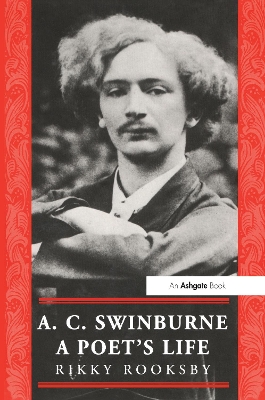The Nineteenth Century
1 total work
Algernon Charles Swinburne (1837-1909) was one of the literary sensations of the Victorian period. His iconoclastic poetry and prose challenged attitudes to sex, politics, religion and censorship. Not only writing some of the most original lyric poetry of the time and pioneering criticism, Swinburne became a cultural icon. In the 1860s his very name was a symbol of progressive forces emerging in a repressive age. Readers across the world identified with the paganism and humanism of his poetry. Swinburne's was a turbulent life lived against a backdrop of beautiful settings in the Isle of Wight and Northumberland, and shared with a host of Victorian luminaries, or artists and writers such as D G Rossetti, Elizabeth Siddal, Burne-Jones, Morris and Simeon Solomon. It is a life touched by early tragedy and romantic disappointment, by extraordinary fame and abject loneliness, by masochism and alcoholism, but above all by an unquenchable vivacity. At the centre was the charmingly spoken, excitable genius whom Burne-Jones described as 'quite the most poetic personality I have ever known.' the artistic prodigy who seemed to have read almost everything, who was as happy revelling in the sea as in literary discourse. Based on new research and many unpublished letters, Rikky Rooksby sheds light on Swinburne's personality and relationships, and discusses how Swinburne's poetry develops from early pessimism to a recovered joy in the energies of the natural world. This biography is a sympathetic and fresh account of one of the most colourful figures in English literature.
